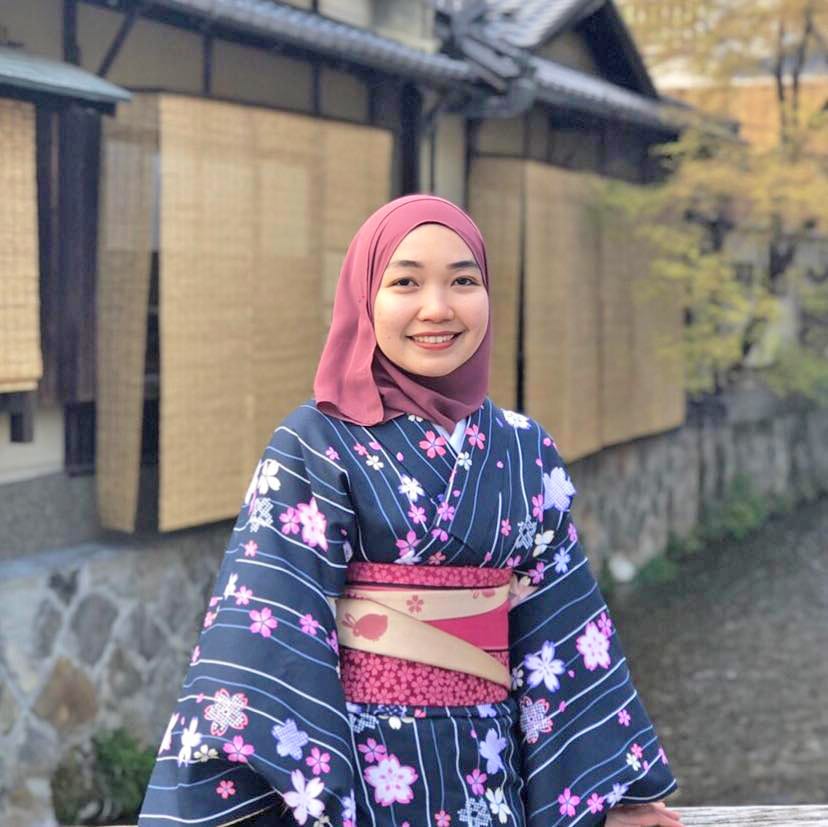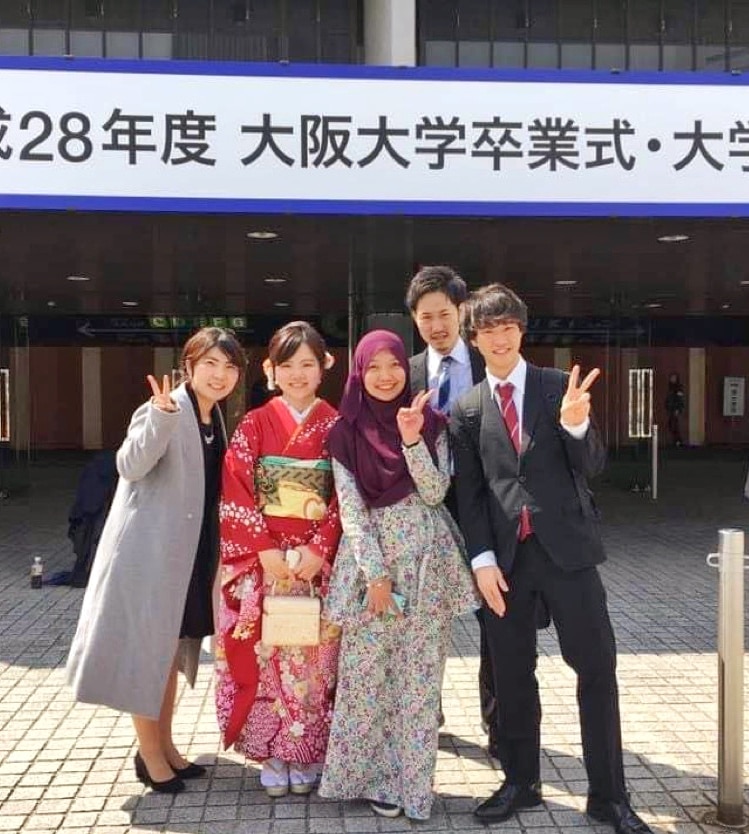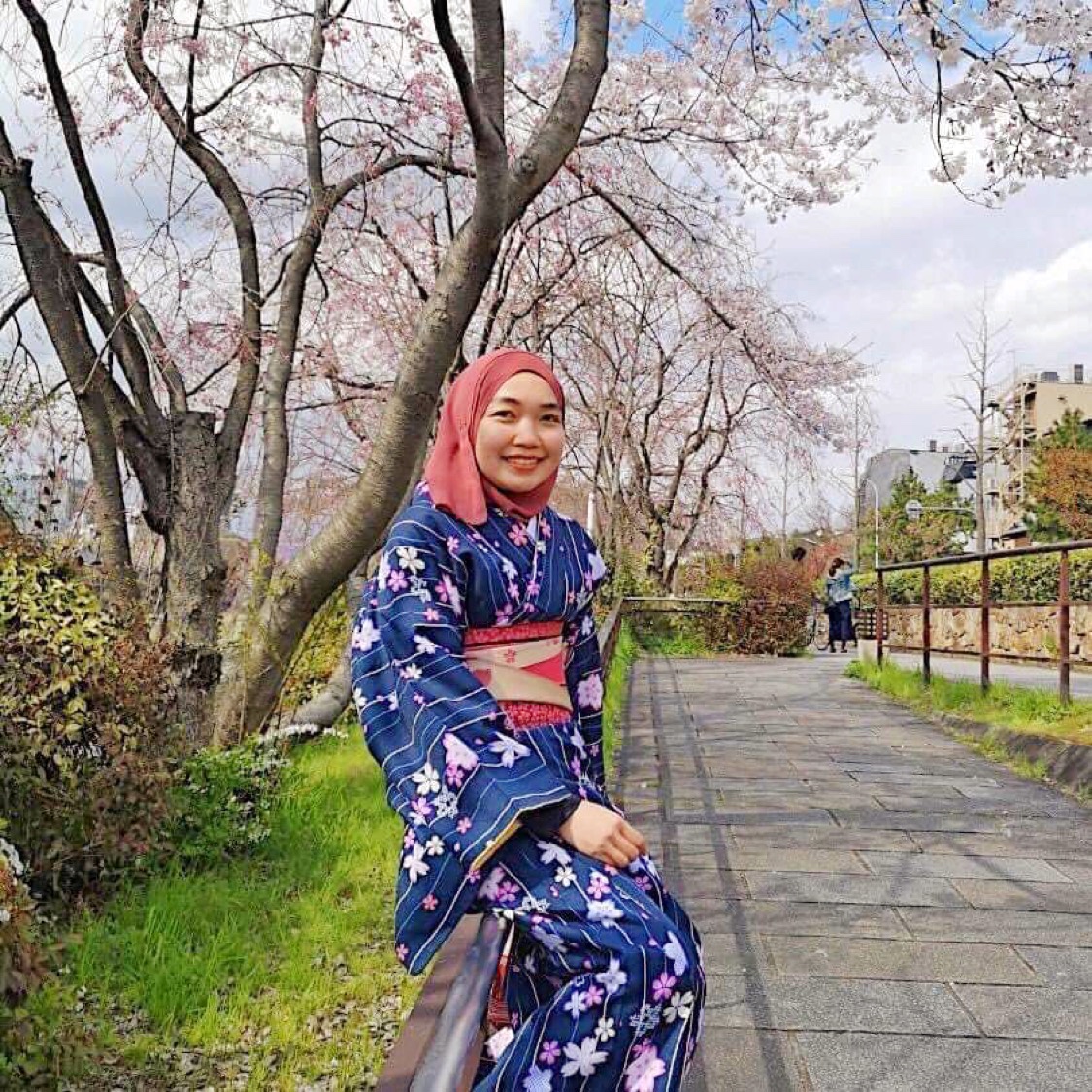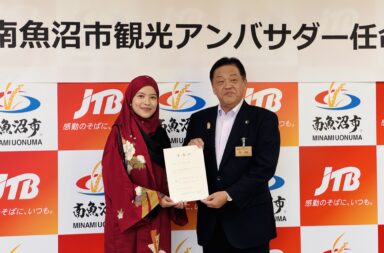Written by: Swastika Kusumawati
Working abroad could be a choice to get a challenging experience, a higher career, a better salary, or many more. As a jobseeker also a Muslims, we may have some concerns about working abroad, especially, in this terms, when it comes to working in Japan.
Today we met a Muslimah from Malaysia, sister Marliza Madung, who is working in a healthcare-related company in Kobe (Hyogo Prefecture) and is kindly sharing with us her experience working in Japan.

Today’s guest, Sister Marliza Madung
From Malaysia to Japan
Sister Marliza came to Japan from Malaysia in 2011 to pursue her Bachelor’s degree in biotechnology at Osaka University with a scholarship sponsored by the Malaysian government. She finished her 4-year study and continued to the Master’s degree for 2 years at the same university.

Finding a Company to Work at
In the first year of her Master’s degree and exactly at the same period when Japanese university students do job hunting, she started to apply for jobs. She said, that it was not easy for her as a foreigner to find a company that would hire her. On top of that, she mentioned that there are some factors in the success and failure of job seeking, varying from job types we apply for and Japanese proficiency to the lack of understanding in the company in accepting foreigners.
According to Sister Marliza’s experience, she applied to approximately 30 pharmaceutical-related companies and joined many job-hunting seminars, but she only got very few interview calls.
It doesn’t let her down.

Sister Marliza in Graduation Ceremony of Osaka University
See Also
Career Support Collaboration with Bandung Institute of Technology
She changed her strategy to do job hunting through recruitment agencies for foreigners instead of applying by herself directly to the company. The great thing she found is the agency’s staff is very kind and helpful as they are used to talking and interacting with foreigners. Alhamdulillah, the strategy connected her to the company she is currently working for.
Most Japanese companies don’t understand foreign cultures including religion. To prevent any misunderstanding in the future, Sister Marliza specifically explained to the company her religion, why she wears a hijab, and her need to pray sometime during working time during the interview session. Alhamdulillah, the company had to hire a Muslim staff before so they have an adequate understanding of Muslims and warmly welcome her to join the company after graduation.
See Also
5 Things Muslims Need to Know When Working in Japan
The company that hired her is a Japanese company related to health-diagnostic in Kobe, which allows her to get in touch in a healthcare field job and learn how the company produces various health-check machines and products which is a link with her major.
In the company, she is placed in the R&D department which allows her to be in the laboratory where she can brush up her skills in developing new products in immunology. Furthermore, she was briefly involved in a project to develop a rapid diagnostic product to detect the COVID-19 virus.
Is Japanese Necessary?
According to Sister Marliza, it is better if we can speak Japanese, at least at a conversational level (JLPT N4 or N3) as we will communicate mostly in Japanese during work, and also most documents are in Japanese.
The Japanese proficiency needed depends on the job type. If the scope is business with clients, business levels of Japanese and English tend to be mandatory. The need for fluent Japanese also applies to professional jobs such as engineer, nurse, and doctor the need to clearly understand scientific and technical terms.
If you are looking for a job with almost no Japanese, you might go with a research-related job because it tends to have a lot of researchers who are able to speak English very well.
See Also
Learning Business Japanese: My Golden Ticket from Japan to the World
Advice for Muslim Jobseekers in Japan
Sister Marliza recommends starting job-hunting as soon as possible and asks seniors’ opinions about effective ways to start job-hunting in Japan. Also, as per her experience, it is better to use a recruitment agency for foreigners because they can match our needs and introduce us to companies which have an understanding towards foreigners and are Muslim-friendly and have a high probability to quickly introduce you to a vacancy.
In addition, your resume reflects the first impression of you and your potential, so she advises having your resume checked by native speakers to check your grammar.
Since Japanese proficiency skills are one of the important aspects of job seeking, take the time to take JLPT N1 when waiting for an interview call.
See Also
What YOU Should Know About Working in Japan! (Featuring Career Diversity, Inc.)

Furthermore, she advises us to not be afraid to explain to them our needs as Muslims during the interview and also need to be wise in explaining it. For example, explain that we can do Zuhr pray during lunch break and Asr in a short afternoon break. This is extremely important to show them that we can manage time effectively between prayer and work without bothering working time or responsibility in working. Explaining this during the interview will avoid misunderstanding after you join the company.
However, need to note that we cannot only talk about our needs but we also have to show our high-responsibility attitude at work. In doing so, Muslim women can show that the hijab is not an obstacle to working hard. Preparing oneself with proper Islamic knowledge in Japanese is also a good way to have them understand us.
In her experience, the company previously had a Muslim staff, they kindly provided halal food in the company’s cafeteria and asked her if she needed anything during the orientation session. They even consider providing me with wudu’ space and a proper prayer room!
On top of that, being persistent, not losing hope, and being patient are extremely important especially when rejected by companies. Recently many companies have started to openly accept Muslims/foreign staff, so there are chances if we continue to work hard.
See Also
Part-Time Job Option as an Interpreter for Foreign Elementary Students
Bittersweet Experience Working in a Japanese Company
In the company where Sister Marliza is working, there are several foreign staff from other countries besides Japanese staff, which allows her to brush up on both Japanese and English. Human resources department staff kindly give counseling to staff to get a handle on the working environment and problems.
One good thing is, the company gives training about business manners and rules to the new staff, such as how to exchange name cards, how to write an e-mail, and more for 3-6 months (varying each division) before they finally start working.
Getting herself adapted to the Japanese working culture is something that she was struggling for, which then she mastered. Experience working in a Japanese company can’t help her to not be surprised and also overwhelmed at the same time by how diligent the Japanese are, regardless of position. Sometimes she is super busy and needs to go back home late, but it’s not something that happens every day. She also doesn’t experience any discrimination.
Working in a Japanese company teaches her to think about everything in a positive way and adapt to the Japanese way of thinking and working.

In closing, she encourages everyone who is working in Japan to be proactive and responsible, and shows them our good attitude as a Muslim to give them a good image of us. The last, do your best as your efforts will not betray you.


